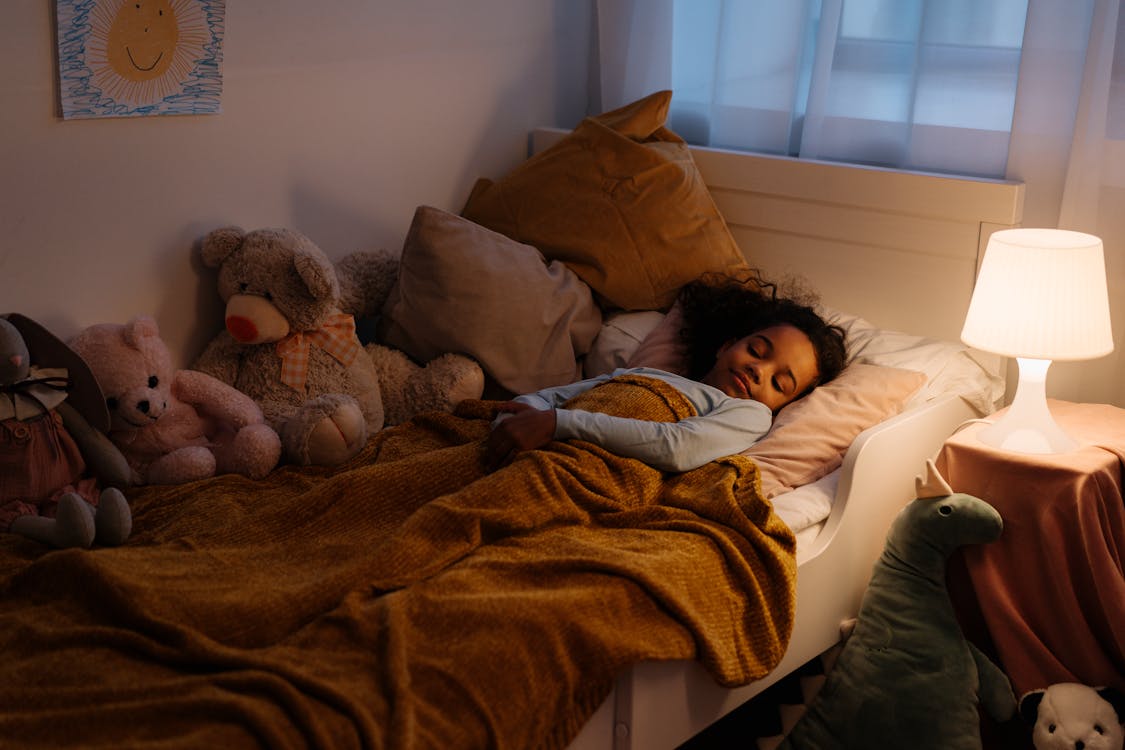Children need a lot of sleep. In fact, until they are around the age of 21, they require more than adults. Sleep is essential for their growing minds and bodies. Without it, they grind to a halt. If they don’t get enough sleep, they struggle to focus at school and can be tired during the daytime.
How much sleep are they getting though? As a parent, you might not know. In this post, we take a look at how much sleep your child needs and how you, as a parent, can find out whether they are getting enough.
Child Sleep Requirements
Children aged five to twelve years old need around nine to twelve hours of sleep per night. For adults used to getting six, that sounds like an enormous amount, but it is essential.
Unfortunately, most kids only get between seven and eight hours of sleep per night. And while that’s enough for most adults, it isn’t enough for their growing bodies.
Lack of sleep is an issue. It can lead to problems with mood, lower test scores, overeating and obesity, poor concentration in school, and cravings for high-sugar food and drink.
 Here are some questions to consider:
Here are some questions to consider:
- Are they waking up multiple times during the night?
- Does your child complain about being tired all the time?
- Is your child taking an afternoon nap and does it last longer than their peers?
- Is your child spending a lot of time sleeping on the weekends?
Chances are that if you answered yes to any of the above questions, your child has a potential sleep issue. They might not be getting enough.
Here are some of the ways that you can change this:
 Improve Their Bedding
Improve Their Bedding
If you go on sites like Foryourlittleone, you’ll see that bedding has come along a long way. Children can now get mattresses that are just as good as those for adults.
Also, make sure that they have comfortable sheets and pillows. A good thread counts makes sleep a bit more comfy.
Turn Off Screens
Have a policy of turning off screens before bed. Try to keep smartphones, tablets, TVs and laptops out of bedrooms as these can seriously impact your child.
Skip the Caffeine
Children should be avoiding caffeine anyway, but it is in a lot of products that they consume, including colas and energy drinks. Avoid these. Even though they help your child feel more alert during the day, they can cause overstimulation of their adrenals, making it harder for them to sleep at night.
Help Your Child Get An Hour Of Physical Activity Per Day
Every day, your child should be moving. If they aren’t getting physical activity, then they won’t be regulating their sleep-wake cycle correctly. Come the evening, they will still feel active and won’t be as ready for bed as they could be.
Schedule Regular Wake-Up Times
Kids don’t like regular wake-up times, but they are essential for getting their bodies into a rhythm, particularly on school days. Set a time when they must get up. Around 7:30 am is a good option.

